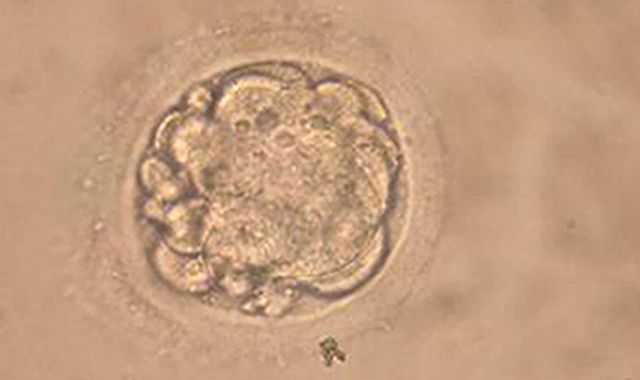New project to unlock the secrets of how human embryos develop
Written by News on 25/07/2019
A new scientific project is being launched in the UK to unlock the secrets of how human embryos develop in the first weeks and months after fertilisation.


Known as the Human Development Biology Initiative (HDBI), the project will build a detailed picture of how cells divide and specialise in the 20 weeks after being fertilised.
This process can go wrong and about 3% of babies are born with development defects which start early in pregnancy – ranging from spina bifida to cleft palates – but scientists don’t know why or how these defects happen.
Research into this has been limited to samples of cellular and animal models and so early human development remains a bit of a mystery in its detail.
Very few laboratories in the UK have access to human embryo tissue samples – meaning that key pieces of research which would lay the foundation for major scientific advances haven’t yet been carried out.
Even when those samples are available, the issue is “incredibly diverse” said Wellcome – the research charity funding the new initiative – “reflecting the genetic and environmental origins, making insights hard to define”.
HBDI will bring researchers together over a five-year programme involving scientists from UCL, the Francis Crick Institute, the Babraham Institute, University of Oxford, the University of Cambridge, the University of Dundee and the University of Newcastle.
It will involve donated human embryos and human foetal tissue ranging from four to 20 weeks of development.
Speaking to Sky News, Professor Andrew Copp from UCL’s Institute of Child Health explained that this material was always taken from terminated pregnancies when the women involved had given permission for its use in scientific study.
The samples are only ever collected from clinics where women have gone to have an abortion, and they are usually fragmented because of the process of terminating the pregnancy.
Professor Copp said the study did absolutely not grow embryos itself.
A small number of embryos are fertilised by the researchers when an egg has been donated by a woman who has undergone IVF treatment and decided to donate her eggs after completing her family, these are never grown behind a tiny group of four or eight cells.
Wellcome stated: “The UK has a strong regulatory and legal framework and the HDBI will work within and respect these regulations.
“The initiative will actively work to consider the ethical issues raised by this growing area of research and includes a specific ethics programme and public engagement programme.”
The programme has been approved by the national research ethics authority.
Professor Rick Livesey, based at UCL and one of the researchers leading the HDBI, said: “We know surprisingly very little about how humans develop.
“By understanding what is ‘normal’ in development we will be able to see how things can go wrong, offering new avenues for research. In addition, the insights from this work could help regenerative medicine reach its full potential.”
(c) Sky News 2019: New project to unlock the secrets of how human embryos develop







